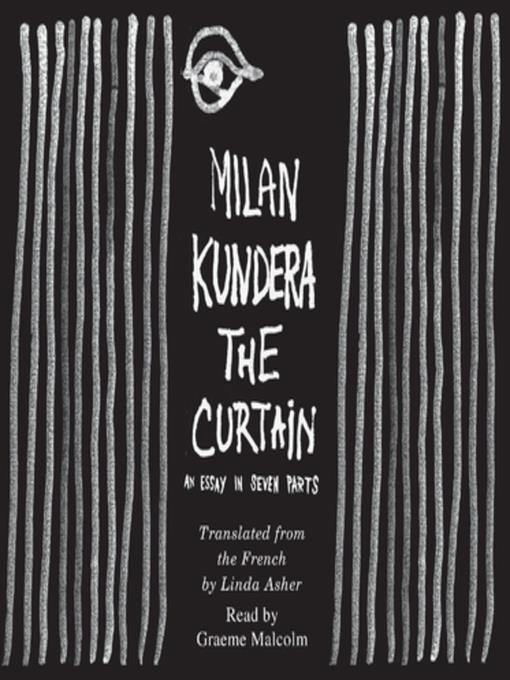
The Curtain
An Essay in Seven Parts
کتاب های مرتبط
- اطلاعات
- نقد و بررسی
- دیدگاه کاربران
نقد و بررسی

Starred review from November 6, 2006
It's not often that a work comes along that so perfectly distills an approach to art that it realigns the way an art form is understood. Susan Sontag's revolutionary work On Photography
was one such piece. Kundera's new book-length essay should be another.
The renowned Franco-Czech author (The Book of Laughter and Forgetting
) investigates the history of the novel, beginning with the moment in which Cervantes denied Don Quixote's desire for elevation to knight-errant and instead "cast a legendary figure down: into the world of prose." In the prosaic world, according to Kundera, the absence of pathos, the insistence on the comedic and the interrelation of all novels represent the locus of meaning and emotional impact. Kundera argues against the tendency to classify and study literature through the lens of nationality. Instead, he proposes a world literature that would take into account the way novelists learn from one another, Sterne from Rabelais, Fielding from Cervantes, Joyce from Flaubert and, though he never explicitly states it, Kundera from them all.
This is a self-consciously personal vision of "the poetics of the novel," one that displays Kundera's own preoccupations, from his Central European dislike of sentimental kitsch to his exhortation that, to be counted in the history of the novel, all novelists must follow Cervantes, must " the curtain of preinterpretation" into which we are all born. Only then can the novel accomplish its purpose: to show its readers their own lives.

Starred review from January 1, 2007
Picking up where he left off in "The Art of the Novel" (1988), Franco-Czech novelist Kundera marvelously conducts us on a journey through the history of the novel. With "Don Quixote", Miguel de Cervantes tears apart the curtain of the real world and reveals the magical world that hides behind it. Cervantes's enchanting novel gives birth to a long line of descendants, from Laurence Sterne and François Rabelais to Gustave Flaubert, Franz Kafka, Hermann Broch, Leo Tolstoy, and James Joyce. Kundera elegantly reminds us that the novel cuts across world literatures and that the history of the novel is not simply a history of a particular nation or its literature: "It was to Rabelais that Sterne was reacting, it was Sterne who set off Diderot, it was from Cervantes that Fielding drew constant inspiration, it was against Fielding that Stendhal measured himself, it was Flaubert's tradition living on in Joyce]" The immediacy of Kundera's evocative prose and the rich tapestry he weaves compel us to pick up and read, or reread, the bountiful literary treasures of Western literature. This could be a book from which to draw a summer reading list. Highly recommended for all libraries.Henry L. Carrigan Jr., Lancaster, PA
Copyright 2007 Library Journal, LLC Used with permission.

























دیدگاه کاربران